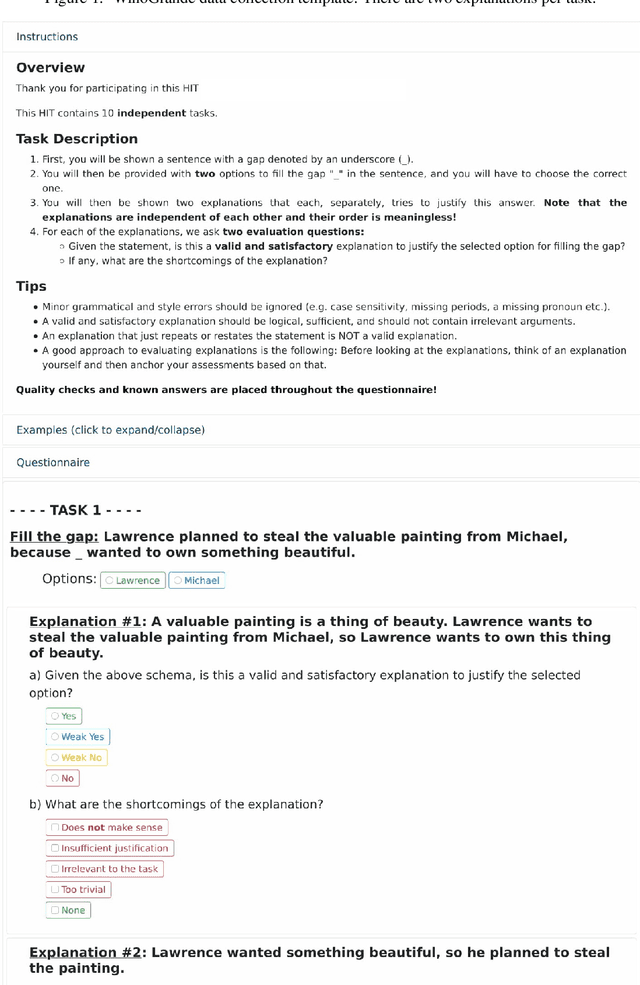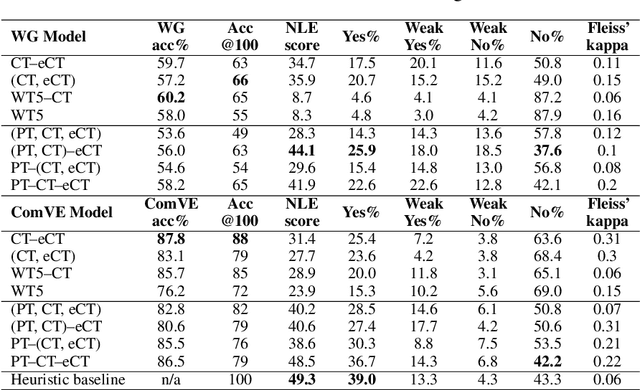Few-Shot Out-of-Domain Transfer Learning of Natural Language Explanations
Paper and Code
Dec 12, 2021



Recently, there has been an increasing interest in models that generate natural language explanations (NLEs) for their decisions. However, training a model to provide NLEs requires the acquisition of task-specific NLEs, which is time- and resource-consuming. A potential solution is the out-of-domain transfer of NLEs from a domain with a large number of NLEs to a domain with scarce NLEs but potentially a large number of labels, via few-shot transfer learning. In this work, we introduce three vanilla approaches for few-shot transfer learning of NLEs for the case of few NLEs but abundant labels, along with an adaptation of an existing vanilla fine-tuning approach. We transfer explainability from the natural language inference domain, where a large dataset of human-written NLEs exists (e-SNLI), to the domains of (1) hard cases of pronoun resolution, where we introduce a small dataset of NLEs on top of the WinoGrande dataset (small-e-WinoGrande), and (2) commonsense validation (ComVE). Our results demonstrate that the transfer of NLEs outperforms the single-task methods, and establish the best strategies out of the four identified training regimes. We also investigate the scalability of the best methods, both in terms of training data and model size.
 Add to Chrome
Add to Chrome Add to Firefox
Add to Firefox Add to Edge
Add to Edge